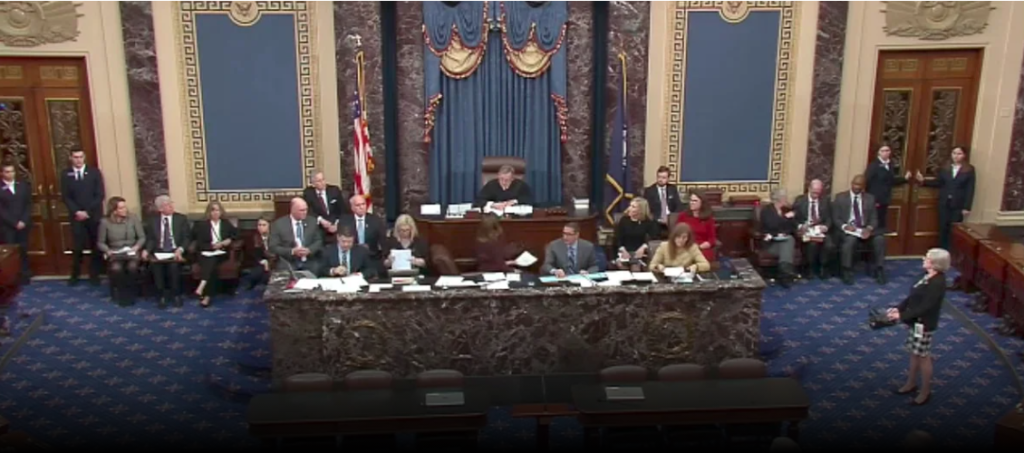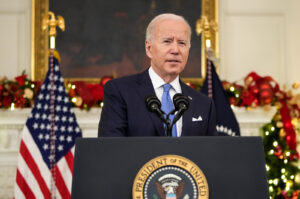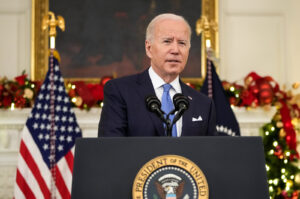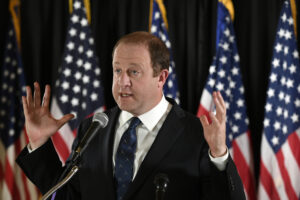After impeachment, where to next for US politics?

The impeachment trial of President Trump has ended with his exoneration. Without question the process has damaged the American political system. It won’t break it, but it will test it.
Some impacts will be more immediately felt than others. The biggest test of how much damage Trump’s impeachment has done will be the 2020 general election this November.
Before we can consider the possible repercussions of Trump’s impeachment, let us first consider the fallout from two earlier impeachments – Richard Nixon’s in 1974, and Bill Clinton’s in 1999.
Trump, Nixon and Clinton: three impeached Musketeers
The Nixon impeachment came at a contentious time in American history. Faith in the government and its institutions was deeply eroded. The nation was divided. Nixon was sullied by Watergate. He resigned before his impeachment began, knowing he would likely be found guilty.
Gerald Ford replaced him in August 1974, and had the job of healing the nation’s wounds. For Republicans, though, the damage was already done. They paid the price in the 1976 election. In January 1977, Jimmy Carter became the 39th president.
Despite his best efforts, Carter didn’t have an easy time attempting to bring the country together. While seen as a good and decent man by most Americans, Carter soon fell out of favour as he struggled with a stagnant economy. He lasted only one term.
It wasn’t until the early 1980s, some six years after Nixon’s resignation and a decade after Watergate, that the United States regained its swagger under Ronald Reagan.
Unlike Nixon, Clinton enjoyed better times. He was impeached after he had rebooted an ailing economy. Employment was strong. Times were good. In addition, he had the luxury of leading the US after the Cold War. It was without peer as the true superpower.
Clinton’s impeachment, though scandalous, didn’t appear to diminish the country in any way. Nor did it impact on his popularity. Clinton’s presidency ended with an approval rating higher than any of his predecessors – a contrast to the approval ratings for Richard Nixon and Donald Trump.
Measured against Nixon’s impeachment, the US emerged from the ugly Clinton impeachment relatively unscathed. Donald Trump, however, is a very different president in a very different time.
Like Clinton, he’s fortunate to be in office with a healthy domestic economy, but Trump has repeatedly called into question America’s leadership in international affairs. The US faces many global challenges and several aggressive challengers. It’s no longer the unipolar power of the 1990s.
Trump’s actions have compromised the integrity of the US on the international front. As a result, they have the potential to be far more damaging.
Bill Clinton’s misdemeanors were of a moral and, arguably, marital nature. They were a domestic political matter. Similarly, Nixon had engaged in domestic crimes with the events leading to Watergate and his downfall. This is not to dilute the seriousness of their impeachments.
Trump’s actions, however, undermine Washington’s international standing and its credibility as an ally. Whatever one might think about either of the three men, Trump has done more to undermine the office of president and the United States more generally. This is why his case has been so explosive and divisive.
So how might we expect things to play out after his acquittal?
Where to now?
One thing appears certain. The US will remain bitterly divided, perhaps even more so, now that his trial is over. The trial itself was ushered along by Republican Senate majority leader Mitch McConnell, who ensured that things would run smoothly for the President. This will do nothing to improve the partisan rancour the President and the Republicans share with Nancy Pelosi and the Democrats.
Donald Trump remains in office. There is no Gerald Ford-esque figure to replace him. No healer waiting in the wings. Nobody to assuage the American public that the “long national nightmare is over”.
But Trump is not Nixon. There will be no resignation in disgrace. There will probably be no mea culpa. Trump sees himself as the perennial winner, and may well use his “victory” as an appeal to his base during the election campaign.
Trump has imposed himself on the international stage in his own inimitable manner. In the eyes of his supporters at home, this adds to his credibility as President. He’s making America great again! This is important to recognise, because this point of view bolsters his chance to win a second term in November.
There will be no resignation in disgrace. There will probably be no mea culpa. Trump sees himself as the perennial winner, and may well use his “victory” as an appeal to his base during the election campaign.
I’ve spent some time in US over the past few years, and while many people told me they were tired of politics, there were almost as many who supported Trump. Some were more discreet than others, but they were with Trump for the long haul, and strongly disagreed with Trump’s impeachment.
Another ongoing consequence will be debate over the extent to which Trump has made the office above the law.
The Republicans controlled the trial. With a majority in the Senate, they had the numbers to block any direct testimony of witnesses. Most notable was John Bolton, who was begging to be subpoenaed to explain what he knows about Trump’s contact with Ukraine and his threat to withhold funds. A trial without witnesses in a land whose constitution seeks to guarantee a fair trial for all – have the Republicans changed the course of American jurisprudence by letting Trump off so easily?
What does this mean for executive power? Has Trump’s acquittal essentially moved the office of president to being one step closer to being above the law? Has a new precedent been set for presidential conduct? The answer may well reside in the personality of future presidents and how much they’ll be willing to push the limits of their authority under the law. It will take time for them to become apparent; perhaps decades.
More immediately, though, is the 2020 election.
Current polling suggests Trump is marginally behind his Democrat rivals. But this is slightly misleading. The electoral college, not the popular vote, decides the winner. One need only ask Hillary Clinton to confirm this. Trump’s strength lies in his ability to pass the electoral college magic number of 270. In 2016 he won 304 votes to win office. He may well do so again.
Should that happen, Trump will have his second term. With the impeachment behind him, he will feel supremely confident in advancing his policy proposals, at home and internationally.
Second-term presidents famously go legacy shopping. They want to leave some sort of indelible imprimatur that will live on long after they leave office. Trump will be no different. He’s actively sought to tear down many Obama initiatives, and is unlikely to stop there. His acquittal will embolden him to act, perhaps more carelessly and with a sense of impunity. Then again, perhaps he’ll be chastened by the impeachment experience. Nonetheless, he’ll push on to establish his legacy, whatever it may be, for better or worse.
The wash-up
The wash-up of the Trump impeachment proceedings is that little has changed. Republicans and Democrats remain bitterly opposed. And yet a lot has changed. A presidential impeachment has only occurred four times since 1776. It doesn’t happen every day. This underlines the gravity of the situation.
True, the Democrats have sought to shine the spotlight on a serious, some say criminal, presidential act. Yet the legal process afforded by the Senate trial finds the President not guilty.
The non-political elements of the American public are increasingly desensitised to the ongoing political fighting. At the same time, there’s no bridging of the partisan chasm between those who support Trump and those who do not. He remains the single-most divisive figure in the United States. Speaker Nancy Pelosi and the Democrats may be claiming a moral victory, but the acid test is the 2020 election.
In the meantime, Donald Trump remains in the Oval Office. He’ll continue to dismiss the impeachment as a hoax, and he’ll stir popular sentiment any way he can to ensure he wins a second term.
The Article was originally published on After impeachment, where to next for US politics?







